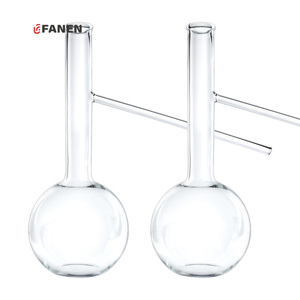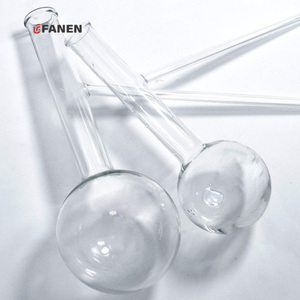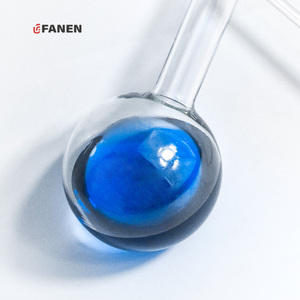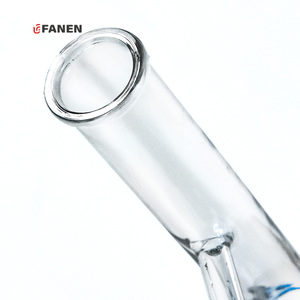
All categories
Featured selections
Trade Assurance
Buyer Central
Help Center
Get the app
Become a supplier

(2300 products available)















































glassware instruments are a popular choice for serving small portions of spirits or liquors, often used in various social settings to enhance the drinking experience. These small glasses are designed specifically for quick consumption, usually holding between 1 to 1.5 ounces of liquid. While their primary purpose is to serve shots, glassware instruments can also be used for tasting and sampling different beverages, making them a versatile addition to any barware collection. Available in numerous designs and materials, they cater to diverse preferences and occasions, whether in private gatherings or commercial establishments.
The variety of glassware instruments available on the market is extensive, catering to different styles and preferences. Common types include classic shot glasses, novelty shot glasses, and collectible shot glasses. Classic shot glasses are typically simple in design, made from glass or plastic, and are used for everyday purposes. Novelty shot glasses often feature unique shapes, colors, or prints, making them a fun and quirky option for themed parties or events. Collectible shot glasses are often sought after by enthusiasts and may feature intricate designs or commemorative motifs. Each type of glassware instruments is crafted to provide a distinctive drinking experience, whether for casual use or special occasions.
glassware instruments offer a range of functionalities that contribute to their popularity in social settings. Primarily designed for serving spirits in small quantities, they facilitate quick and easy consumption. Features such as weighted bases, tapered sides, and durable materials enhance the usability and aesthetic appeal of these glasses. A weighted base provides stability, preventing spills, while tapered sides allow for a comfortable grip. The durability of glassware instruments ensures they can withstand frequent use without damage, making them ideal for both home bars and commercial establishments. Additionally, the compact size of these glasses makes them easy to store and display.
The production of glassware instruments involves the use of various materials, each offering distinct properties and aesthetics. Glass is the most common material, valued for its transparency and ability to showcase the color and clarity of the beverage. Plastic shot glasses are lightweight and shatterproof, making them suitable for outdoor events or venues where safety is a concern. Stainless steel shot glasses offer a sleek, modern look and are highly durable, often chosen for their resistance to corrosion and easy maintenance. Ceramic and crystal shot glasses are also available, providing a luxurious touch to any occasion. The choice of material impacts the overall feel and functionality of glassware instruments, allowing users to select based on preference and intended use.
Using glassware instruments effectively involves understanding their specific application and maximizing their benefits. For optimal use, select the appropriate type of glass based on the occasion and the beverage being served. Ensure the glass is clean and free from any residue to maintain the taste and quality of the drink. When hosting events, consider using themed or novelty glassware instruments to enhance the ambiance and guest experience. Proper handling and storage are crucial to prolong the life of these glasses; avoid stacking them to prevent scratches and chips. Additionally, educating guests on responsible drinking practices is essential, ensuring that glassware instruments are used safely and enjoyably in social settings.
When selecting glassware instruments, several factors should be taken into consideration to ensure they meet your needs. First, consider the design and style that best fits the occasion or setting. Whether you prefer classic, novelty, or collectible options, each type of glassware instruments offers unique aesthetic appeal. It's also important to think about the capacity of the glass, which typically ranges from 1 to 1.5 ounces. The material is another crucial aspect, as it affects both the durability and the visual impact of glassware instruments. Glass, plastic, stainless steel, and ceramic are popular choices, each providing different benefits. Finally, consider the ease of cleaning and maintenance, especially if you plan to use glassware instruments frequently.
glassware instruments are often made from materials such as glass, plastic, stainless steel, and ceramic. Glass is favored for its transparency and elegance, while plastic is lightweight and shatterproof, ideal for outdoor use. Stainless steel provides a sleek, modern look and high durability, whereas ceramic offers a touch of luxury. Each material has its advantages, influencing the choice based on the intended use and personal preference.
To ensure the durability of glassware instruments, opt for materials known for their strength, such as stainless steel or high-quality glass. Pay attention to features like weighted bases and thick construction, which contribute to stability and resistance to wear. Proper care, including gentle washing and careful storage, also plays a significant role in maintaining the longevity of glassware instruments. Avoid stacking them to prevent scratches and chips.
Novelty glassware instruments can be used for everyday purposes, though they are often chosen for themed events or as conversation starters. While their unique designs add fun and character to gatherings, their practicality for regular use depends on the material and design. Some novelty glassware instruments may be more fragile or difficult to clean, so consider these aspects when deciding how often to use them.
Yes, glassware instruments are versatile enough to serve non-alcoholic beverages, such as juice, water, or even small dessert portions. Their compact size makes them ideal for tasting and sampling various drinks, regardless of alcohol content. Using glassware instruments for non-alcoholic options can add an element of sophistication and fun to any gathering, ensuring guests enjoy a diverse range of beverages.
To clean glassware instruments effectively, use warm water and mild detergent, gently scrubbing to remove any residue. Avoid harsh chemicals or abrasive materials that could damage the surface. For stubborn stains, consider soaking glassware instruments in a mixture of vinegar and water before washing. Proper drying and storage are essential to prevent water spots and scratches, ensuring glassware instruments remain in excellent condition for future use.